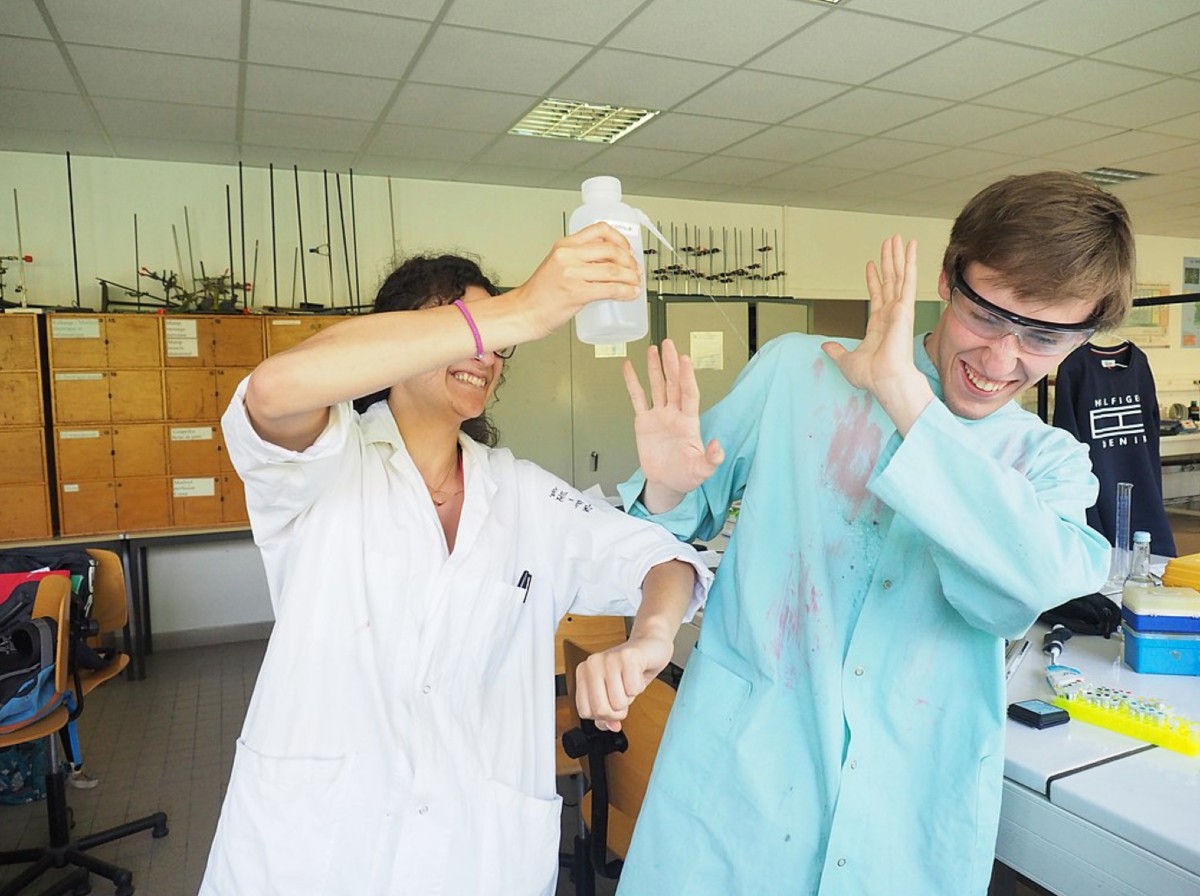
What is Conflict Resolution?
Conflict Resolution refers to efforts by individuals, teams, or communities to resolve disputes and negotiate settlements.
Key Concepts: Coauthorship; Teamwork; Team Charter
“In the workforce, employers want employees who can anticipate obstacles to project completion, develop contingency plans to address the obstacles, and take corrective action when projects go off track. Desirable employees are those who can bring others together to reconcile differences, handle conflicts maturely through a mutual give-and-take approach, and actively promote mutual goals and interests.” -Ennis (qtd in Oliveri et. al, 2017)
Conflict is inevitable. No matter how much we love and respect the people whom we live with or work with, we will inevitably disagree with them from time to time. Critique, even when well intentioned, may trigger emotional responses. Avoiding conflict in collaborative projects requires a proactive approach to communication, role clarification, expectation setting, and diversity management. Here are some research-based guidelines that can help:
Clear and Regular Communication
Remember the time your friend thought you said meet at “the Pier” when you actually said “the Beer” (the local pub)? Yeah, three hours of waiting time and an annoyed friend later, you realized the importance of clear communication. In a team setting, it’s essential to make sure everyone understands the tasks at hand. Misunderstandings can lead to confusion, repeated work, or even comedic mix-ups like the Pier-Beer debacle.
Define Roles and Responsibilities:
Imagine you’re in a band. You show up for the first rehearsal, guitar in hand, ready to rock… and discover that everybody else also brought guitars. No drummer, no singer, no bassist – just a bunch of guitarists. Well, that’s an awkward jam session, isn’t it? Similarly, in a team project, everyone should know their part and play it well. This helps avoid ‘too many guitarists’ situations and keeps the team harmony.
Set Clear and Realistic Goals:
Ever tried to assemble IKEA furniture without the instruction manual? It’s like trying to solve a puzzle that fights back. In a team, you need a clear picture of what you’re trying to achieve. Without clear, realistic goals, your project could end up like that botched IKEA bookshelf – lopsided and with a few extra parts left over.
Active Listening:
Listening is more than just not speaking. Remember that funny episode in ‘Friends’ where Chandler pretends to listen to Joey’s never-ending stories but zones out? Well, that’s NOT active listening. In a team, you need to listen to understand, not just to respond. And unlike Chandler, you can’t just nod and get away with it.
Conflict Resolution Mechanism:
Ever seen a football game without a referee? Chaos, right? Similarly, teams need a fair and neutral method to resolve conflicts, or it’s not going to be long before your project turns into a free-for-all football match. And trust me, nobody wants that.
Respect Diversity:
Picture this: You’re at the best potluck dinner ever. There’s a variety of dishes – spicy Mexican enchiladas, creamy Italian lasagna, delicious Indian biryani, and even your grandma’s famous apple pie. Everyone’s brought something different, and that’s what makes it great. A diverse team is like this potluck – it’s the mix of different skills, backgrounds, and ideas that makes it successful.
Trust Building:
Remember the trust falls you did at that summer camp? You had to fall back and trust that your teammates would catch you. Now, I’m not suggesting you start doing trust falls in the office (unless you fancy a trip to HR), but building trust in a team is crucial. When there’s trust, team members are more likely to support each other, take risks, and work towards the common goal.
Feedback and Review:
Remember that time you walked around with spinach in your teeth all day and nobody told you? A little bit of feedback would’ve been nice, right? Well, it’s the same with teamwork. Regular constructive feedback helps team members improve and grow. Plus, it helps avoid embarrassing metaphorical spinach-in-teeth situations in your project.
Team Charter
To help facilitate clarity in communications, you are wise to use a Team Charter.
Sometimes we are wise to avoid conflict it. Sometimes there isn’t time to deal with human drama. And sometimes it helps to give the people involved in a conflict time to cool off. Conflict resolution is an essential skill.
Yet ignoring conflict can be deeply problematic. Left unresolved, conflict can fester and grow like a cancer. Ego, power relations, gender, personality, and ideology can impede communications. People can have different levels of commitment to projects. And health issues can get in the way.
Being able to diffuse conflicts is an empowering life skill. In their review of literature on collaborative problem solving, Maria Elena Oliveri and her colleagues at ETS have identified conflict resolution as a core workplace competency:
The ability to resolve conflicts involves reacting to or anticipating obstacles preemptively (AAC&U, 2011; Hesse et al., 2015; Marks et al., 2001; O’Neil et al., 1997). It also involves identifying and correcting gaps, errors, or misunderstandings that arise during the execution of tasks (OECD, 2013b). Ideally, conflict is confronted and win–win strategies are used to resolve conflict directly and constructively. Instead of focusing on personal gain, it may be useful to encourage solutions that benefit all team members to address common goals (AAC&U, 2011; Stevens & Campion, 1994). Alternatively, conflict can be resolved by incorporating the needs and viewpoints of all parties. In either case, insights regarding opposing or different views should be sought to hear all members’ views and minimize misunderstandings.
References
Oliveri, M., Lawless, R., & Molloy, H. (2017). A Literature review on collaborative problem solving for workforce readiness. GRE Board Research Report Series and ETS Research Report Series, 1-27. Doi:10.1002/ets12133.





















